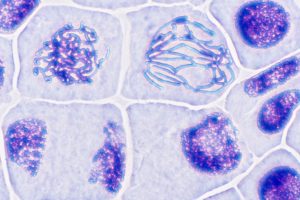Cells possess a mysterious hidden communication system, new study suggests

 In a groundbreaking study that could revolutionize our understanding of cellular biology, researchers have uncovered evidence of a hidden communication system within cells, distinct from the well-known pathways involving DNA.
In a groundbreaking study that could revolutionize our understanding of cellular biology, researchers have uncovered evidence of a hidden communication system within cells, distinct from the well-known pathways involving DNA.
This revelation opens up a new realm of biological intrigue, offering a fresh perspective on how cells interact and coordinate their functions.
The study, recently published in a leading scientific journal iScience, indicates that cells possess an intricate network for transmitting information, which operates independently of the genetic code.
This discovery suggests that there is much more to learn about the inner workings of cells, the basic building blocks of life.
“Our research reveals the capability of cells to harness transmembrane ion gradients as a means of communication, allowing them to sense and respond to changes in their surroundings rapidly,” Dr. Dipesh Niraula, Ph.D., an applied research scientist in the Department of Machine Learning and study co-author, explained.
“This intricate network enables cells to make swift and informed decisions, critical for their survival and function.”
The implications of this research are vast. It could lead to significant advancements in medical science, particularly in the treatment of diseases where cellular communication goes awry.
Understanding this novel communication system could also pave the way for the development of innovative therapies that target these previously unknown aspects of cell biology.
The research team’s findings are based on meticulous experiments and data analysis, which have revealed the existence of this cellular communication system. While the exact mechanisms remain to be fully elucidated, the study provides compelling evidence that will undoubtedly spur further research in the field.
“This study challenges the implicit assumption in biology that the genome is the sole source of information and that the nucleus acts as a kind of central processor,” study co-author and research scientist at the Moffitt Cancer Biology & Evolution Program, Dr. Robert Gatenby, said in a statement.
As scientists delve deeper into this discovery, we can expect a surge of new knowledge that will enhance our grasp of life at the molecular level.




